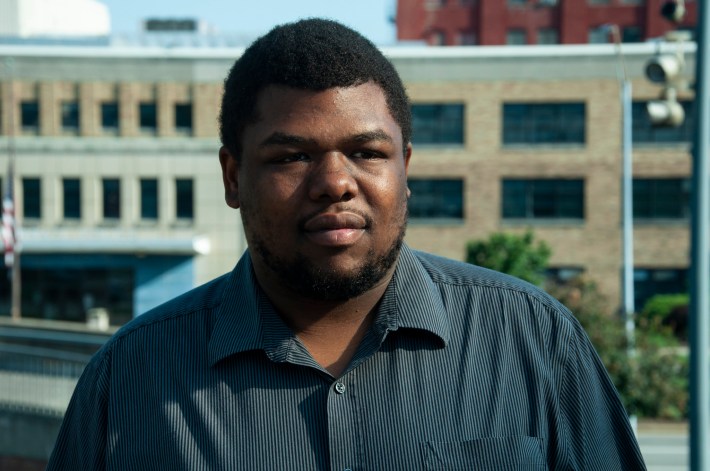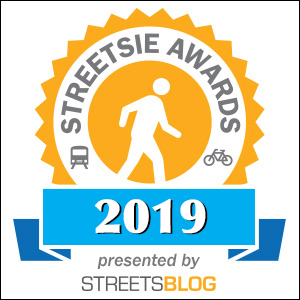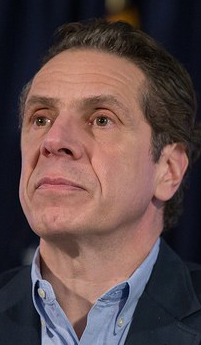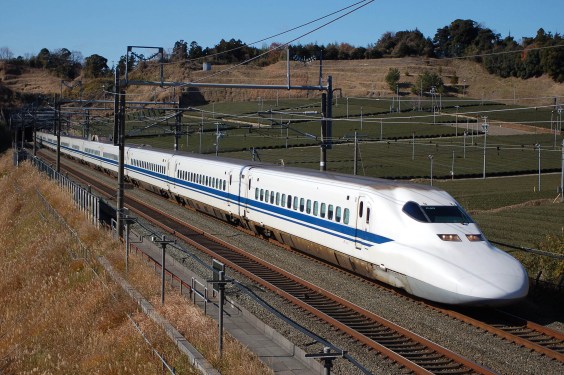Sponsored post: The Transportation Research Board’s 99th Annual Meeting will be held in Washington, D.C. from Jan. 12-16, 2020. Click here for more information.
Transportation systems require the support of thousands of workers and millions of people to run efficiently, but sometimes it only takes one individual to make our mobility better.
Here at Streetsblog, we feel it's necessary to recognize the people who inspire us to make our neighborhoods more walkable, reduce emissions, and win the War on Cars. So let's take a look at the individuals who shaped our year for good.
And the nominees are...
San Francisco Mayor London Breed
The pressures to cater to car owners and NIMBY residents — sometimes the same wealthy cohort — are immense in many localities, but San Francisco is dealing with a unique housing crisis that has led civic workers to leave the city in search of affordable housing and take hours-long commutes for decent paying jobs.
Inaugurated just 18 months ago, Breed has already begun addressing the crisis by issuing an affordable housing plan with a $600-million housing bond, working to expedite the approval process for new projects, and moving quickly to develop new units on city-owned land.
Breed has also pushed through a multi-year plan to ban cars from a two-mile stretch on Market Street, making the busiest thoroughfare in the city eminently more walkable.
Mayor London Breed was one of thousands of bike commuters on Market Street early this morning and later announced her commitment to more protected bike lanes! #BikeToWorkDay pic.twitter.com/RjAY3MAlVo
— Better Market Street (@BetterMarketSF) May 9, 2019
Atlanta Mayor Keisha Lance Bottoms
Atlanta is in the midst of a dramatic transformation of its transportation system after its regional transportation authority put out its wish list of 76 transit projects that would cost a total $15 billion. Bottoms isn't the one pulling those funding levers — a lot of that money may ultimately have to come from the state — but she's the most influential figure in the southeastern U.S. in the way she's shaped the region's transportation vision.
After forming Atlanta's first Department of Transportation in March, she developed a $5-million mobility plan in September that would triple the number of protected bike lanes and install traffic calming measures. She followed that up two months later by launching a strategic transportation plan with a mandate of eliminating pedestrian deaths and injuries from traffic crashes.
Bottoms has also remained committed to micromobility despite public pressure to bar electronic scooters from city streets. She has allowed them to circulate during daytime hours and scooter use will likely continue to rise once more protected bike lanes get installed. And she's been instrumental in luring private dollars to the Beltline, Atlanta's vaunted rails-and-trails project, as federal grants have stalled.
#BREAKING: Atlanta Mayor Keisha Lance Bottoms announces she is creating the city’s first Department of Transportation: https://t.co/ViW40lfgMp pic.twitter.com/nrJLcmPYZG
— Atlanta Journal-Constitution (@ajc) March 14, 2019
Cam Hardy, president, Better Bus Coalition of Cincinnati

Election Day is a fraught time of year for transportation initiatives. Grand plans to bolster a growing metropolis with light rail service (Nashville), extend bus transit in the suburbs (Atlanta, Detroit), and ensure that future levels of investment in mass transit continue as planned (Washington State) have all died in the ballot box in recent years. Yet advocates who sell the public on the need and realistic cost for better bus service are undeterred.
This year, they can point to efforts in conservative regions like Hamilton County, where voters approved a proposal to reshuffle its transit tax that essentially repealed a 0.3-percent earnings tax in order to replace it with a 0.8-percent increase to the sales tax. Cincinnati's Cam Hardy, the president of the Better Bus Coalition is the clear driving force here, spending the better part of a year convincing voters to support the tax in order to raise $100 million annually for bus service in the region, plus another $30 million for roads and bridges.
Oregon Gov. Kate Brown
The societal ills borne from single-family zoning were the talk of Twitter this year ... until cities and states started doing something about it.
And no upzoning legislation was more impressive than Oregon's measure barring the long-standing practice of reserving property for one type of housing development — single-family homes. The law that Gov. Brown signed would remove bans on duplexes, triplexes and cottages in single-family lots allowing cities with more than 25,000 people to build more housing and become denser without sprawling outward.
It's especially impressive that she managed to get this accomplished in a rancorous environment where Republican state senators fled the state instead of passing a climate change.
Here's hoping 2020 will have less drama and Brown can get some bipartisan measure across that lowers greenhouse gas emissions.
New York Gov. Andrew Cuomo
Gov. Andrew Cuomo's congestion pricing plan will toll drivers entering Midtown and Lower Manhattan — a proposal that will not only reduce car trips, but it will also generate much-needed revenue for the MTA, which will use the money to improve commuter rail and subway service (the life blood of the entire region). Cuomo is the nominee here, but he could not have done it without the help of a Democratic-controlled state legislature and an array of advocates united behind the concept. The victory, which received international attention even as details continue to be worked out, showed people that Cuomo can once again wield the levels of state power in order to push through an important cause.
Beth Osborne, director, Transportation for America
It takes a lot of courage to question Washington's conventional wisdom, especially when that wisdom involves spending on infrastructure. Credit goes to Transportation for America's Beth Osborne for jump-starting the conversation that maybe we shouldn't spend any more money on new highways until we fix our old roads and bridges first.
Osborne and other advocates running up against opposition from organized labor, state department of transportation leaders, and members of both parties who seem adamant about boosting infrastructure in an election year regardless of the costs. Yet Osborne is an influential figure among a cohort of congressional leaders on the Hill who founded a transportation caucus to push Congress to consider the lasting effects of a car-dependent future.
We will see if those efforts become realized when the surface transportation bill is renewed next September.
Child who kicked the SUV that ran over his mom
This year will likely go down as one of the deadliest ever for cyclists pedestrians while drivers are more likely to survive a traffic crash. Confrontations between hulking SUVs and vulnerable families trying to cross the street play out on streets every day across the globe.
Earlier this month, one metallic behemoth barreled through a crosswalk without noticing a mother and her son walking directly in front of him. The Nissan stopped only after colliding with the woman, giving her child a chance to gather his wits and kick the front of the car as the driver got out to inspect the damage. Thanks to the Internet, one small boy's stand echoed the frustrations and fears that millions of us have when we walk across streets dominated by bloated vehicles. That kid is an international hero.
SUV-Assaulting Rock of Nebraska
Dwayne Johnson is easily the most popular rock in America, whose movies have grossed $4 billion in the country and another $10 billion overseas. But the second-most-popular rock in America is a small boulder in an Omaha parking lot that has mangled more than a dozen SUVs whose drivers can't see the strip mall's creative landscaping.
Thanks to the vehicles' poor sight lines and hulking size, these gas guzzlers get trapped when they drive over the Stone of Triumph. Friend of Streetsblog Aaron Gordon at Jalopnik called this chunk of sediment a "Hero Rock" for the destruction it has left in its path and we humbly agree.
And the Streetsie goes to ...
Cam Hardy. Passing any kind of transit tax, let alone in a red state, is pretty impressive.












